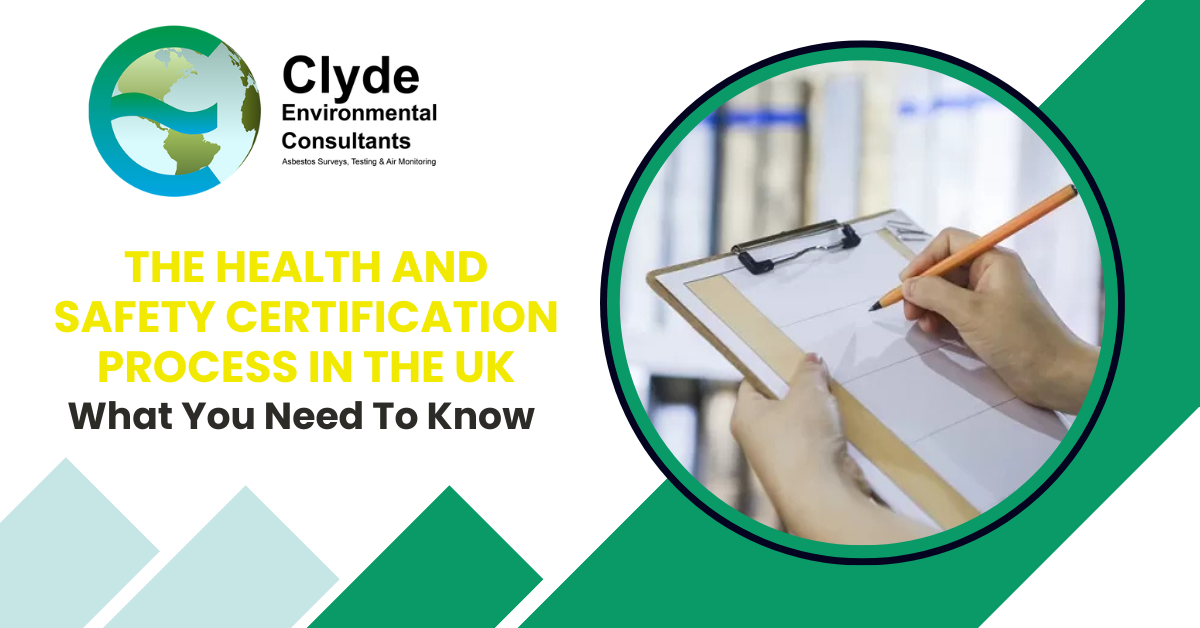
Ensuring workplace safety is not just a legal obligation but a fundamental responsibility for all employers in the UK. Many businesses face uncertainty when trying to meet health and safety standards, often struggling with compliance, paperwork, and choosing the right certification. Understanding the health and safety certification UK process is essential for maintaining a safe work environment and avoiding potential legal repercussions. This guide provides a detailed overview of the certification process, highlighting key requirements and benefits for employers and employees alike.
Understanding Health and Safety Certification in the UK
Health and safety certification in the UK is designed to ensure that workplaces meet legal safety requirements, reducing the risk of accidents and injuries. Certification serves as formal recognition that an organisation complies with the Health and Safety at Work Act 1974 and other relevant regulations. Depending on the industry, different certifications may be required, but all serve the common purpose of safeguarding employees and promoting a culture of safety.
Why is Health and Safety Certification Important?
- Legal Compliance: Employers are required by law to provide a safe working environment, and certification helps demonstrate compliance with regulatory bodies.
- Employee Well-being: A certified workplace reduces the likelihood of injuries, ensuring a safe and productive workforce.
- Reputation and Credibility: Certification boosts business credibility, reassuring clients, investors, and partners that the organisation prioritises safety.
- Financial Benefits: Preventing workplace accidents minimises compensation claims, legal costs, and downtime.
Key Health and Safety Certifications in the UK
There are several recognised health and safety certifications in the UK, each serving different industries and organisational needs. Some of the most important certifications include:
1. ISO 45001 – Occupational Health and Safety Management System
ISO 45001 is an internationally recognised standard that provides a framework for managing workplace health and safety risks. It helps organisations create policies and procedures to prevent accidents and promote a safety-first culture. Businesses seeking certification must undergo an audit process to assess compliance with ISO standards.
2. CHAS (Contractors Health and Safety Assessment Scheme)
CHAS certification is widely recognised in the construction industry and ensures that contractors comply with health and safety laws. It simplifies the pre-qualification process for suppliers and demonstrates a company’s commitment to workplace safety.
3. NEBOSH (National Examination Board in Occupational Safety and Health)
NEBOSH offers various certificates and diplomas, equipping professionals with the knowledge needed to manage workplace safety effectively. It is ideal for managers, supervisors, and individuals responsible for health and safety.
4. SMAS (Safety Management Advisory Services)
SMAS is a recognised SSIP (Safety Schemes in Procurement) certification that helps businesses demonstrate compliance with UK health and safety legislation. It is often required in sectors such as construction and manufacturing.
5. CITB Health and Safety Awareness Certificate
Designed for individuals entering the construction industry, this certificate provides fundamental health and safety training. It is a prerequisite for obtaining a Construction Skills Certification Scheme (CSCS) card.
The Process of Obtaining Health and Safety Certification in the UK
The certification process varies depending on the type of certification sought but generally involves the following steps:
1. Understanding Legal Requirements
Before applying for certification, businesses must familiarise themselves with UK health and safety laws, including the Health and Safety at Work Act, Control of Substances Hazardous to Health (COSHH), and Manual Handling Operations Regulations.
2. Conducting a Risk Assessment
A thorough risk assessment helps identify potential hazards in the workplace. Employers should document these risks and implement appropriate control measures.
3. Implementing Health and Safety Policies
Developing clear health and safety policies is essential. These policies should outline procedures for hazard prevention, emergency response, and employee training.
4. Training Employees
Health and safety training is a critical component of certification. Employees must be educated on best practices, emergency procedures, and proper use of protective equipment.
5. Applying for Certification
Once the necessary measures are in place, businesses can apply for certification through recognised bodies such as BSI (British Standards Institution) or CHAS. The application process often includes submitting documentation and undergoing an assessment.
6. Undergoing an Audit
Many certification bodies require an on-site audit to verify compliance with health and safety standards. Auditors assess policies, training records, and risk assessments to determine certification eligibility.
7. Maintaining Compliance
After obtaining health and safety certification UK, businesses must regularly review and update safety procedures. Annual audits and continuous employee training help maintain compliance and improve workplace safety.
Common Challenges and How to Overcome Them
Many businesses encounter difficulties during the certification process. Some common challenges include:
- Lack of Awareness: Employers may not fully understand which certification applies to their industry. Researching industry standards and seeking professional advice can help.
- Resource Constraints: Smaller businesses may struggle with the time and costs associated with certification. Planning and using online training resources can reduce expenses.
- Resistance to Change: Employees may be hesitant to adopt new safety procedures. Regular training and clear communication can help integrate safety measures effectively.
Conclusion
Obtaining health and safety certification in the UK is a crucial step for businesses aiming to provide a secure work environment while meeting legal obligations. From choosing the right certification to implementing safety measures and maintaining compliance, the process requires commitment and ongoing effort. By prioritising workplace safety, businesses not only protect their employees but also enhance their reputation and operational efficiency. Whether you’re a construction firm, a corporate office, or a manufacturing plant, ensuring your workplace meets health and safety standards is a responsibility that brings long-term benefits for all.